- 2 Live Project
- Self-Paced/ Classroom
- Certification Pass Guaranteed
- Salesforce is one of the most respected names when it comes to CRM solutions and cloud solutions. Using Salesforce, a firm can easily manage its marketing and sales efforts. This is why over 1,50,000 companies worldwide are using Salesforce in their organization.
- The Salesforce Certification will help you understand the working of different Salesforce cloud solutions. Moreover, Salesforce Training will also help you learn about the security model of this robust cloud-based CRM solution. Plus, you will become familiar with various cloud concepts and terminology.
- Things you will learn in the Salesforce Course:
- Prerequisites:
- This Salesforce Training is for professionals who want to become experts in working with Salesforce and get the most out of this robust cloud-based CRM solution.
- This Salesforce Course is for:
Fundamentals of Salesforce
Salesforce terminology
Best Salesforce practices
Salesforce Sales Cloud
Benefits/advantages of using Salesforce
Customizing Salesforce
Salesforce administration & development skills, etc.
Basic computer knowledge
Basic knowledge of Salesforce
Passion for learning
Basic knowledge of cloud concepts and terminology
Students who don't have enough knowledge about Salesforce
Salesforce Developers
Salesforce Administrators
Engineering students
Aspiring Marketing Cloud Admins
- Our Salesforce Training content normally comprises of some the latest features, benefits, and implementations.
- Our Salesforce Course will help you:
Provide quality training to aspiring Salesforce experts.
Help students master the skills necessary to become experts in working with Salesforce.
Help students master the fundamentals of Salesforce.
Prepare students to clear the Salesforce certification exam easily
Make students comfortable in deploying and managing apps on the platform.
Help students in developing vital Salesforce administration & development skills, etc.
Master Salesforce fundamentals
Learn the benefits/advantages of using the platform
Master Salesforce best practices
By taking up our Salesforce Certification, you will also get to know how to configure the CRM platform
Learn how to work with Marketing Cloud
Master vital salesforce administration & development skills
Understand the responsibilities of a Salesforce Developer/Administrator
Become a skilled Salesforce Developer/Administrator
- Demand for skilled Salesforce Developers is massive in the global job market. This is mainly because today, large numbers of organizations are using Salesforce for managing their marketing and sales efforts. So, enrolling in the Salesforce Course will be beneficial for your career in numerous ways.
This is why today; firms don't hesitate to pay a large amount of money to Salesforce developers. As per sites like Monster and Naukri, a Salesforce developer can earn handsome remuneration for his services.
As per Glassdoor, a Salesforce developer can earn around 3,00,000-14,00,000 per year, depending upon experience and proficiency in working with the platform.
In simple words taking up the Salesforce Certification will help you turn into a knowledgeable Salesforce Developer.
- The Salesforce Course can help students open doors to lots of phenomenal and exciting career opportunities. Once the students complete the Salesforce Certification, they can work as:
- If the reports are to be believed, then the number of firms using Salesforce is expected to increase a lot more in the upcoming years. As a result, there will be a huge demand for Salesforce experts in the market. Thus, it is right to say that enrolling yourself in this Salesforce Training and pursuing your career as a Salesforce expert can be very advantageous for you.
Salesforce Developer
Salesforce Administrator
Train for roles like Salesforce Marketers, Salesforce App Builders, Paradot Experts, etc.
Salesforce Architects
Salesforce Trainers
- Salesforce is one of the most renowned and popular names when it comes to CRM solutions and cloud solutions. The CRM solution is famous for its user-friendliness and lots of unique features. Moreover, the platform empowers its users to manage their prospects and customers and their sales/marketing efforts more easily and efficiently. In short, a firm can gain lots of benefits by using Salesforce.
- Here's why Salesforce Training is so popular among its customers:
Easy to handle
The Its world's largest cloud-based platform
Great community support
Highly customizable and scalable
- Salesforce is a robust cloud-based platform. Thus, it is essential for Salesforce Developers to have sufficient knowledge about SaaS and PaaS delivery models. Furthermore, he/she must be proficient in customizing the platform and working with the different tools and features of Salesforce. Moreover, if you also want to turn into a knowledgeable Salesforce Developer, you must take up the Salesforce Course immediately.
- Here are some of the major responsibilities of a Salesforce Developer:
Develop Salesforce apps
Customize the existing services of the platform for the client
Track system deficiencies
Interact with stakeholders for understanding their requirements
Maintain the quality of data
Debug bugs in the existing apps
Data migration
Build AppExchange products
Perform fit-gap analysis
- The economy of the platform is growing at a very rapid rate. This is the reason why competent Salesforce Developers are in much demand and get huge salaries for their services all over the world. As per a survey, the demand for Salesforce Certification between 2019 and 2020 grew more in contrast to previous years. Moreover, the demand for competent Salesforce experts has also grown a lot in sectors like IT, sports, engineering, and education over the past few years.
- Here are some of the firms that have hired hundreds of Salesforce Developers over the years:
Accenture
Tata Consultancy Services
Cognizant Technology Solutions
IBM
Capgemini
Infosys
Wipro
Tech Mahindra
- Once you complete the Salesforce Training program, you will get a training certificate from Croma Campus. The Salesforce Course will help you prove your expertise in working with Salesforce in front of potential employers. Besides this, you will also receive various other student services once you complete the training program.
- For example, you will receive services like:
- Advantages of getting Salesforce Certification:
100% placement support
Interview grooming sessions
Resume preparation
Access to our job portal
Help you prove your expertise in working with the Salesforce platform
Big pay-check
Lots of job opportunities
Boost your job profile
Why Should You Do Salesforce Certification Training?
By registering here, I agree to Croma Campus Terms & Conditions and Privacy Policy
 Course Duration
Course Duration
32 Hrs.Flexible Batches For You
19-Apr-2025*
- Weekend
- SAT - SUN
- Mor | Aft | Eve - Slot
21-Apr-2025*
- Weekday
- MON - FRI
- Mor | Aft | Eve - Slot
16-Apr-2025*
- Weekday
- MON - FRI
- Mor | Aft | Eve - Slot
19-Apr-2025*
- Weekend
- SAT - SUN
- Mor | Aft | Eve - Slot
21-Apr-2025*
- Weekday
- MON - FRI
- Mor | Aft | Eve - Slot
16-Apr-2025*
- Weekday
- MON - FRI
- Mor | Aft | Eve - Slot
Course Price :
35,00035,000% OFF, Save 0Program fees are indicative only* Know more
Timings Doesn't Suit You ?
We can set up a batch at your convenient time.
Program Core Credentials
Trainer Profiles
Industry Experts
Trained Students
10000+
Success Ratio
100%
Corporate Training
For India & Abroad
Job Assistance
100%
BATCH TIMING
As per your requirementFOR QUERIES, FEEDBACK OR ASSISTANCE
Contact Croma Campus Learner Support
Best of support with us
Salesforce Certification Training Programs
Salesforce Certification TrainingPrograms
- Cloud Computing Overview
Introduction to Cloud Computing
Introduction to IAAS, PAAS, SAAS
Deployment Models
Introduction to CRM
How can CRM help
Evolution of CRM
Advantages of CRM
A view of available of CRM Products
- Introduction to Salesforce CRM
What is Salesforce.com
Salesforce CRM Overview
Why Salesforce
Understanding Salesforce Architecture
Services Provided by Salesforce
Salesforce Vs Other Cloud
Market Demand for Salesforce CRM.
Job Market and growth in CMR industry.
Salesforce Editions, Licenses and Pricing
Salesforce Sandboxes (Dev, QA, Full, Prod.)
Creating First SFDC Dev Account
Salesforce.com CRM Editions
Salesforce.com Navigation Overview
Creating Salesforce Developer Account
- Salesforce Applications
Sales Cloud, Service Cloud, Custom Cloud
Rapid application Development, Cost Reduction & Quality Products
- Salesforce Certifications
Certified Administration (201)
Certified Advanced Administration (211)
Salesforce certified platform developer 1 (PD1: 401)
Salesforce certified platform developer 2 (PD2: 501)
- Organization Setup
Salesforce Quick Navigation Walk Through
Popular Std. Objects and their purpose
Set up Menu Intro (Various OOB and Dev Options
Popular in different other objects
Organization profile, Currency etc.
Salesforce User Interface Overview
- Objects in Salesforce
Types of objects available in salesforce
Standard Objects
Custom Objects
Use of Standard Objects and Custom Objects in Salesforce
Difference between standard and custom object
Limitations of Standard Objects
- Tabs in Salesforce
Introduction to tab
Assigning tab to object
Types of Tab - Custom Object Tabs, Visualforce, Web tab, Lightning Page tabs
- Intro on various Data Types/Fields
Various data type fields creation
Standard Data types
Read only Data types
Relational Data types
Roll-Up Summary Fields and its features.
Limitations of Roll-up Summary Fields
Required, External Id, Default Value and Unique fields
- Object Relationships
Introduction to Relationships
Need of Relationships in salesforce
Brief on Types of relationship
Master-Details, Lookup, Self-relationship, External lookup relationship, Indirect lookup relationship, Many-to-many relationships (Junction object), Hierarchical relationship
Deep in to Junction object
Use of Junction object.
Difference between master-detail and lookup relationship How to convert lookup to master details and vice Versa.
- Defining Workflows
- Workflow Rules
- Types of evaluation criteria in Workflow rules
- Introduction to Approval Process
- Understanding Approval steps, Approval actions, Rejection actions
- Introduction to process builder and its action
- What is the difference between workflow and process builder
- Workflow Actions
Email Alert
Task Create
Field Update
Outbound Message
- Difference between Evaluation Criteria and Rule Criteria
- Workflow Vs Trigger
- Email Templates Overview
- Email Templates for Email Notifications
- Sending Email Templates
Sending Single emails
Sending Mass emails.
- Types of Templates
HTML (Using Letter Head)
Custom HTML (without using letter head)
Visual force Email Templates
- Understanding of formula fields
- Purpose of formula field
- Types of formula field in salesforce
- Text/Logic/Math/Date functions & Other popular functions
- Introduction to cross object formula
- What is the need for object formula
- Introduction to validation rule, Need, and Various popular functions
- What is the difference between the formula field and Rollup summary in Salesforce
- Page Layouts
Defining Page layouts
Field order changes
Adding custom buttons and links
Defining required and read only fields
Adding related list
Adding Sections in Detail page
- Record Types
To create and maintain record types for your organization.
Display different page layouts and picklist values based on record types.
Uses of Record Types
- Field Dependencies
Controlling field/Dependent field
Making dependent pick list fields
Limitations
- 2 Live Project
- Self-Paced/ Classroom
- Certification Pass Guaranteed
- Salesforce.com Overview
- What is Salesforce CRM
Salesforce CRM features and benefits
Salesforce CRM Services and Applications
Salesforce.com Architecture MVC
Comparing MVC to Apps
Course Overview
Why should you go for development in Salesforce
Salesforce editions and licensing
- Salesforce Sandboxes
Sandbox Overview
Different Type of Sandboxes
Developer Sandbox
Configuration only Sandbox
Full Copy Sandbox
Sandbox Vs Production Environments
- Create your first Salesforce Dev Account
- Salesforce Certifications
- Career as a Salesforce Developer
- OOPs Basics
- Class & Object
- Inheritance
- Polymorphism (Method Overloading)
- Benefits in Object Oriented Programming Language
- Identifiers
- Variables and its type
- Access Modifiers
- Classes, Construction, & Methods
- Data Types, Variables
- Types of variables
- Getter & Setter Methods, With Sharing & Without Sharing
- Creation of Objects
- Reference Variables
- Final Variables & Static Variables
- Apex Overview
Introduction to Apex
Purpose of apex
Enable Developer mode
Overview about Developer Console
- Classes in APEX
Language Constructs
Understanding the variables
Constants declaration in Apex
Assign values using expressions
Understanding Data types-string, Integer, Decimal, Boolean
Loops in apex-do {statement} while (Boolean condition)
While statement
for statement
Conditional statement in apex-If, If else
Debug & System Log – Purpose and Use
- Collection in APEX
C Collection in apex
When to use collection
Benefits of using collection
Types of collection.
List methods in salesforce apex
Set methods in salesforce apex
Map methods in salesforce apex
Difference between List and set
- Overview on SOQL,
- Overview of SOSL
- Fetching Records on VF Using SOQL
- Inserting Records from VF to Salesforce
- Debug Logs
- Governing Limits in Apex
- DML statements vs database class methods
- Database DML Operations
- Insert Statement
- Update Statements
- Upsert Statement
- Delete Statements
- Undelete Statements
- Merge Statements
- Rollback operations
- Save Point in DML
- 2 Live Project
- Self-Paced/ Classroom
- Certification Pass Guaranteed
- In the first lecture, we will try to understand the Architecture of Lightning Web components and Lightning Aura components. And Why Salesforce has gone for new Programming model (LWC) on Lightning platform and how it is different from existing aura framework.
- System setup involves Installing Salesforce CLI, SFDX, and visual studio, Creation of Developer Org, Scratch Org etc.,
- How to Create and deploy a simple HelloWorld Lightning Web component
- Archetype of LWC, Project / Component Structure
- Introduction to decorators, Adaptors, Reactive and non-reactive properties
@api
@track
@wire
- 2 Live Project
- Self-Paced/ Classroom
- Certification Pass Guaranteed
- What is Commerce Cloud - B2B Commerce
- Managed package installation & Setup Processes
- Admin
CC Admin,
Anonymous Checkout,
User Checkout,
CSR Checkout,
Account,
Contacts,
Users,
Related Lists
- Accounts & Pricing
Account Groups and Price Lists
- Products
Standard Products,
Categories,
Product Specs,
Filters, and
Product Relationships
- Introduction
Types of Products
Aggregated,
Bundle,
Kit, and
Dynamic Kit
- Marketing and User Interface Configuration
Promotions,
Menus,
Featured/Spotlight Products,
Page Sections,
Page Labels, and
Localization
- Pricing Strategies
Tiered Pricing
- Attribute Driven Commerce
- Subscriptions, and
- Contract Pricing
- Complex Configurations
Effective Accounts and
Line Level Independence
- Overview
Review the technical exercise topics and
Introduce the class
- Administrative Overview
Review Key Terms,
B2B Commerce Architecture and
Technology Stack,
User Interface Demo
- Admin
CC Admin Configuration vs. Code Extension
- User Interface
Layout Overrides,
Subscriber Templates,
Page Includes,
Subscriber Pages,
Handlebar Overrides,
CloudCraze UI Properties,
Extending My Account,
Extending the CloudCraze Checkout Flow,
Global JavaScript Functions,
CloudCraze Event Handling,
Handlebars Functions,
Localization Functions, and
Utility Functions and Objects
- Back-end
Full API review and
Extension instruction
- 2 Live Project
- Self-Paced/ Classroom
- Certification Pass Guaranteed
- In this program you will learn:
Discovery
Conceptual Design
Marketing Cloud Connect
Account Configuration
Reporting
Data Design
Automation
Email Build
Contact Builder
Journey Builder
- Discovery
Provided with a set of business requirements, determine what additional information is needed to design the recommended solution.
Provided with a list of branding and creative strategies, probe for additional information that is needed to recommend an appropriate solution.
Provided a customer environment and goals, determine the viability of external systems that need to be included in the solution (I.e. POS, CRM, ecommerce, data warehouse, data source inputs).
Demonstrate how to gather requirements in order to put together the data and segmentation strategy for the customer (I.e. frequency, complexity, volume of sending).
Given a scenario that includes customer information about subscriber acquisition, management, and attrition, utilizes this information to select solution components.
Given a solution, recommend the appropriate customer skill sets required to utilize the Marketing Cloud application
- Conceptual Design
Analyze customer data to determine the appropriate data model (I.e. List model, Data Extensions).
In a given scenario, determine appropriate solution for given requirements considering technical expertise of personas (I.e. Automation Studio vs. Journey Builder).
In a given narrative data flow, select the correct data flow diagram that depicts that data flow.
In a given customer scenario, identify which User Stories are appropriate to use for accessing Marketing Cloud.
In a given customer scenario, determine factors to consider when scaling the solution.
Articulate how data construct will drive one-to-one messaging and content.
Explain the purpose of IP Warming and make a recommendation based on customer needs.
- Marketing Cloud Connect
Understand the prerequisites to consider prior to starting a Marketing Cloud Connect configuration (I.e. Salesforce edition, list of integration users, scope user, administrator credentials).
Understand how to send an email to a contact, lead, campaign, and report via the Sales / Service Cloud and Marketing Cloud (I.e. sending, triggered, automated).
Understand how Sales / Service Cloud data in the Marketing Cloud can be segmented.
- Account Configuration
Given a customer scenario, recommend the appropriate Marketing Cloud role based on User Stories.
Determine which type of customer scenario warrants the creation of a business unit (I.e. publication types, demographic, workflow processes, and organizational structure).
In a given scenario, troubleshoot issues regarding Reply Mail Management.
Analyze the impact of applying Sender Authentication Package (SAP) to a business unit (I.e. link wrapping, Landing Pages, image URLs).
- 2 Live Project
- Self-Paced/ Classroom
- Certification Pass Guaranteed
- Signing Up for a Free Salesforce Account - Keep it For Life
- Logging in to Salesforce and Switching Between Lightning and Classic
- Industry Knowledge Introduction
- Sales Metrics and Factors that Influence Them
- KPIs and Business Challenges
- Common Sales Processes and Key Considerations
- Implementation Strategies Introduction
- Scenarios and Successful Consulting Engagement Phases
- Planning Phase of Consulting Engagements
- Requirements Gathering Phase of Consulting Engagements
- Designing Phase of Consulting Engagements
- Building Phase of Consulting Engagements
- Testing Phase of Consulting Engagements
- Documentation Phase of Consulting Engagements
- Sales Deployment Considerations
- Measuring the Success of a Sales Cloud Implementation Project
- Designing an End-to-End Sales Process
- It All Begins with a Lead in the Sales Process
- Lead Processes and Lead Qualification Stages
- Lead Field Mapping
- The Lead Conversion Process - an Opportunity is Born (and Contact and Account)
- Analysing Customer Requirements to Determine Appropriate Solution Design
- Implementing Quotes
- Validation Rules and the Sales Process
- Automation Tools and the Sales Process
- Configure, Price, Quote
- Account Teams
- Opportunity Teams
- Enterprise Territory Management Capabilities and Use Cases
- Implementing Orders in Salesforce
- Sales Process Capabilities of Salesforce Mobile
- Sales Process Use Cases of Salesforce Mobile
- Sales Process Design Considerations of Salesforce Mobile
- Marketing and Leads Introduction
- Marketing Capabilities in the Sales Process
- Lead Scoring and Lead Qualification
- Managing Lead Data Quality
- 2 Live Project
- Self-Paced/ Classroom
- Certification Pass Guaranteed
- Introduction to Pardot
Introduction to Salesforce
Common Sales & Marketing Terms
Marketing Automation Goals and Planning
Quick visual of Pardot interface and navigation
Review the Pardot Glossary
- Technical Setup
Implementing Website Tracking Code
Adding DNS TXT Entries
Creating our CNAME and verification
Create or Add Users
Import Prospects
Manage Pardot Accounts
- Administration
Dashboard Overview
Pardot Connectors
Page Actions
Custom Fields
User Management
Recycle Bin
- How Pardot and Salesforce works together
- Covering key items of things to know before connecting the two platforms
- Object Syncing
- Salesforce Connector
- Mapping Fields
- Field Syncing
- Creating the connector in SF and viewing the connector options in Pardot
- How to introduce your sales team to Pardot
- What needs to be done before importing our legacy contacts
- Know Prospects
- Know Visitors
- Difference between prospects and visitors
- Prospect Records
- Prospects Creation
- Add Prospects Manually
- Assigning Prospects
- Deleting and Undeleting Prospects
- Merge Prospects
- Export Prospects
- Importing Prospects
- Tracking Prospect Field Updates
- Tracking Most Recent Prospect Activity
- Prospect Actions
- Prospect Accounts
- Introduction to Lists
What are Lists
Types of Lists
Building List
Dynamic Lists
- Automation
Building Automation Rules
Building Segmentation Rules
Page Actions
- Scoring
Lead Qualification
Scoring Rules
Grading
- Recap - before sending our first email
- Email templates vs List emails
- Building, testing and sending emails
- Verify Email Delivery
- Email preference center
- Working with the awesome Engagement Studio
- Review sending off our first email!
- Email Marketing and Permission-based Marketing
- 2 Live Project
- Self-Paced/ Classroom
- Certification Pass Guaranteed
- Overview
- Concepts and Basic terminologies
- Benefits of Salesforce Einstein Analytics
- Einstein Analytics Components
Apps
Dashboard
Lens
Dataflow
- Sign up for a special Einstein Analytics Developer Edition org
- Setting up Platform
Basic Analytics Platform Setup
Advanced Analytics Platform Setup
Complete Setting up the Analytics Platform
- Define User types
- Define permission sets
- Define Salesforce Licenses
- Einstein Analytics Requirements
- Einstein Analytics Limits
- Set Up Access & Security
- Sharing Mechanism
- Mass sharing
- Row level access and security predicates
- Grant Access and Permissions to Users
- Apply Security & Sharing Inheritance
- Analytics Security Implementation Guide
- Enable Einstein Analytics Features
- Control Access and Secure Data
- Setup Analytics Apps
- Analytics Mobile Features
- Download the Analytics Mobile App
- Learn How to Use Analytics for iOS
- Learn How to Use Analytics for Android
- Set Up and Manage Analytics on Mobile
- Limitations of Analytics on iPhone and iPad
- Limitations of Analytics on Android Devices
- About Dataflows
Understanding Dataflows
Monitor Dataflows
Schedule Dataflows
Run A Dataflow
Run Manually
Run Automatically
Set Data flow notifications
- About Datasets
Columns and Rows in Datasets
Column Types in Datasets
Denormalized Data
Dataset Security
- Data Recipe
Understanding Data recipes
Scheduling Recipes
Exporting data from Einstein
- Getting started with Data Integration
- Ways to get data from data sources into datasets
- Plan for your data integration project
- Considerations Before Integrating Data into Datasets
Handle Numeric Values
Handle Date Values
Handle Text Values
Handle Missing Values
Dataset Capacity and Limits
- Prepare and Load Data into Datasets with Recipes and Dataflows
Connect and Sync Your Data to Einstein Analytics
Design Datasets from Synced Data and Other Datasets with Recipes and Dataflows
Run Data Sync, Recipes, and Dataflows to Create and Refresh Datasets
- Other Ways to Create Datasets
- Manage Datasets
- 3 Live Project
- Self-Paced/ Classroom
- Certification Pass Guaranteed
- Module 1 : Salesforce.com Overview
- Introduction to Cloud Computing
- Introduction to IAAS, PAAS, SAAS
- Deployment Models
- Introduction to CRM
- How can CRM help
- Evolution of CRM
- Advantages of CRM
- A view of available of CRM Products
- What is Salesforce.com
- Salesforce CRM Overview
- Why Salesforce
- Understanding Salesforce Architecture
- Services Provided by Salesforce
- Salesforce Vs Other Cloud
- Market Demand for Salesforce CRM.
- Job Market and growth in CMR industry.
- Salesforce Editions, Licenses and Pricing
- Salesforce Sandboxes (Dev, QA, Full, Prod.)
- Creating First SFDC Dev Account
- Salesforce.com CRM Editions
- Salesforce.com Navigation – Overview
- Creating Salesforce Developer Account
- Sales Cloud, Service Cloud, Custom Cloud
- Rapid application Development, Cost Reduction & Quality Products
- Certified Administration (201)
- Certified Advanced Administration (211)
- Salesforce certified platform developer 1 (PD1: 401)
- Salesforce certified platform developer 2 (PD2: 501)
- Salesforce Quick Navigation Walk Through
- Popular Std. Objects and their purpose
- Set up Menu Intro (Various OOB and Dev Options
- Salesforce Administrator
- Popular in different other objects
- Organization profile, Currency etc.
- Salesforce User Interface Overview
Cloud Computing Overview
Introduction to Salesforce CRM
Salesforce Applications
Salesforce Certifications
Organization Setup
- Module 1 : Introduction
- Salesforce CRM features and benefits
- Salesforce CRM Services and Applications
- Salesforce.com Architecture MVC
- Comparing MVC to Apps
- Course Overview
- Why should you go for development in Salesforce
- Salesforce editions and licensing
- Sandbox Overview
- Different Type of Sandboxes
- Developer Sandbox
- Configuration only Sandbox
- Full Copy Sandbox
- Sandbox Vs Production Environments
Salesforce.com Overview
What is Salesforce CRM
Salesforce Sandboxes
Create your first Salesforce Dev Account
Salesforce Certifications
Career as a Salesforce Developer
- 2 Live Project
- Self-Paced/ Classroom
- Certification Pass Guaranteed
- Getting Started Introduction
- Signing Up for A Free Salesforce Account
- Logging into Salesforce and Switching Between Lightning and Classic
- Downloading and Reviewing the Service Cloud Consultant Certifications Exam Guide
- Assigning The Service Cloud and Knowledge User Feature Licenses
- Introduction and Getting Started Quiz
- Industry Knowledge Introduction
- Installing Service and Support Dashboards to Measure Contact Center Metrics
- Contact Center Kpis
- Contact Center Business Challenges and How Salesforce Helps
- Use Cases and Benefits for Different Interaction Channels
- Challenges and Considerations for Business Continuity in The Contact Center
- Types of Contact Centers and Displaying the Service Console
- KCS Core Tenets and A Glimpse of the Service Setup Menu and Salesforce Knowledge
- Contact Center Components and How They Solve Business Challenges
- Practice Activity Industry Knowledge Trailhead Units
- Industry Knowledge Quiz
- Implementation Strategies Introduction
- Typical Phases of a Consulting Engagement and Creating Custom Objects and Fields
- Contact Center Deployment Strategies
- Practice Activity Implementation Strategies Trailhead Units
- Implementation Strategies Quiz
- Service Cloud Solution Design Introduction
- Analyzing Customer Requirements for Service Cloud Solution Design
- Extending the Service Cloud with Custom Application Development and Third-Party
- Key Components for Performance Optimization and Creating a Validation Rule
- User Experience Requirements Solved by the Salesforce Lightning Service Console
- Salesforce Lightning Service Console Custom List Views and Creating a New User
- Service Console Interaction Logs (Salesforce Classic Only)
- Service Console Custom Components
- Service Console Keyboard Shortcuts
- Service Console Macros
- Service Console Integration Toolkit and Lightning Console JavaScript API
- Adjusting the Service Console Settings
- Practice Activity Service Cloud Solution Design Trailhead Units
- Service Cloud Solution Design Quiz
- Knowledge Management Introduction
- Enabling Salesforce Knowledge and the Knowledge Article Lifecycle
- Managing Knowledge Adoption and Maintenance
- Creating Knowledge Data Categories Groups and Data Categories
- Creating Knowledge Article Record Types and Assigning Page Layouts
- Turning on the Knowledge Sidebar in the Service Console
- Knowledge Publishing Workflow
- Knowledge Data Migration Strategies
- Knowledge vs. Solutions
- Practice Activity Knowledge Management Trailhead Units
- Knowledge Management Quiz
Mock Interviews
Prepare & Practice for real-life job interviews by joining the Mock Interviews drive at Croma Campus and learn to perform with confidence with our expert team.Not sure of Interview environments? Don’t worry, our team will familiarize you and help you in giving your best shot even under heavy pressures.Our Mock Interviews are conducted by trailblazing industry-experts having years of experience and they will surely help you to improve your chances of getting hired in real.How Croma Campus Placement Process Works?
Phone (For Voice Call):
+91-971 152 6942WhatsApp (For Call & Chat):
+91-9711526942Projects
Batch Request
SELF ASSESSMENT
Learn, Grow & Test your skill with Online Assessment Exam to
achieve your Certification Goals
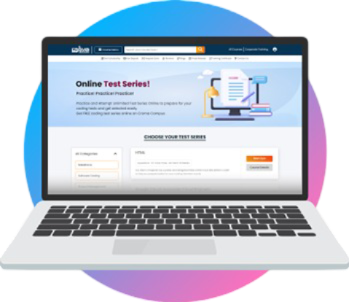
FAQ's
- Basic computer knowledge
- Basic knowledge of Salesforce
- Passion for learning
- Basic knowledge about cloud concepts and terminology
The duration of the Salesforce certification training program is 35-45 days.
You will get to learn about Salesforce under the mentorship of an experienced Salesforce Developer.
You can earn approximately ₹5,00,000 per year as a Salesforce Developer after this course.
We provide our student's video recordings of the classes. In case you miss your class, you can go through the training video and clear your doubts in the next class with the faculty.

- - Build an Impressive Resume
- - Get Tips from Trainer to Clear Interviews
- - Attend Mock-Up Interviews with Experts
- - Get Interviews & Get Hired
If yes, Register today and get impeccable Learning Solutions!.

Training Features
Instructor-led Sessions
The most traditional way to learn with increased visibility,monitoring and control over learners with ease to learn at any time from internet-connected devices.
Real-life Case Studies
Case studies based on top industry frameworks help you to relate your learning with real-time based industry solutions.
Assignment
Adding the scope of improvement and fostering the analytical abilities and skills through the perfect piece of academic work.
Lifetime Access
Get Unlimited access of the course throughout the life providing the freedom to learn at your own pace.
24 x 7 Expert Support
With no limits to learn and in-depth vision from all-time available support to resolve all your queries related to the course.
Certification
Each certification associated with the program is affiliated with the top universities providing edge to gain epitome in the course.
Showcase your Course Completion Certificate to Recruiters
-
Training Certificate is Govern By 12 Global Associations.
-
Training Certificate is Powered by “Wipro DICE ID”
-
Training Certificate is Powered by "Verifiable Skill Credentials"




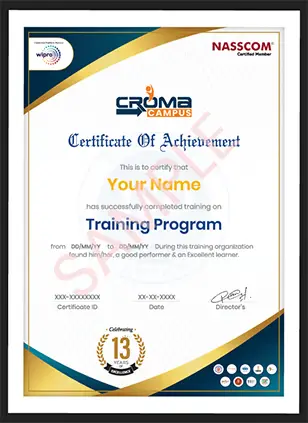

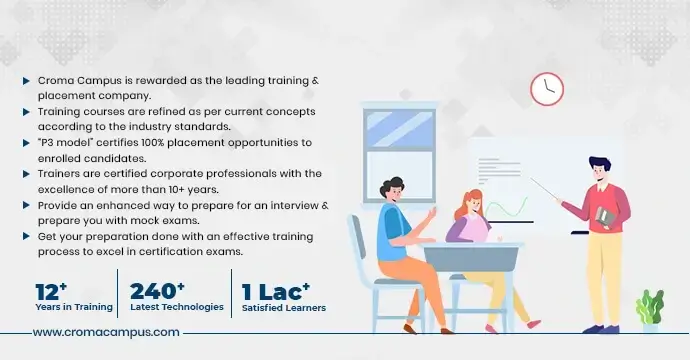

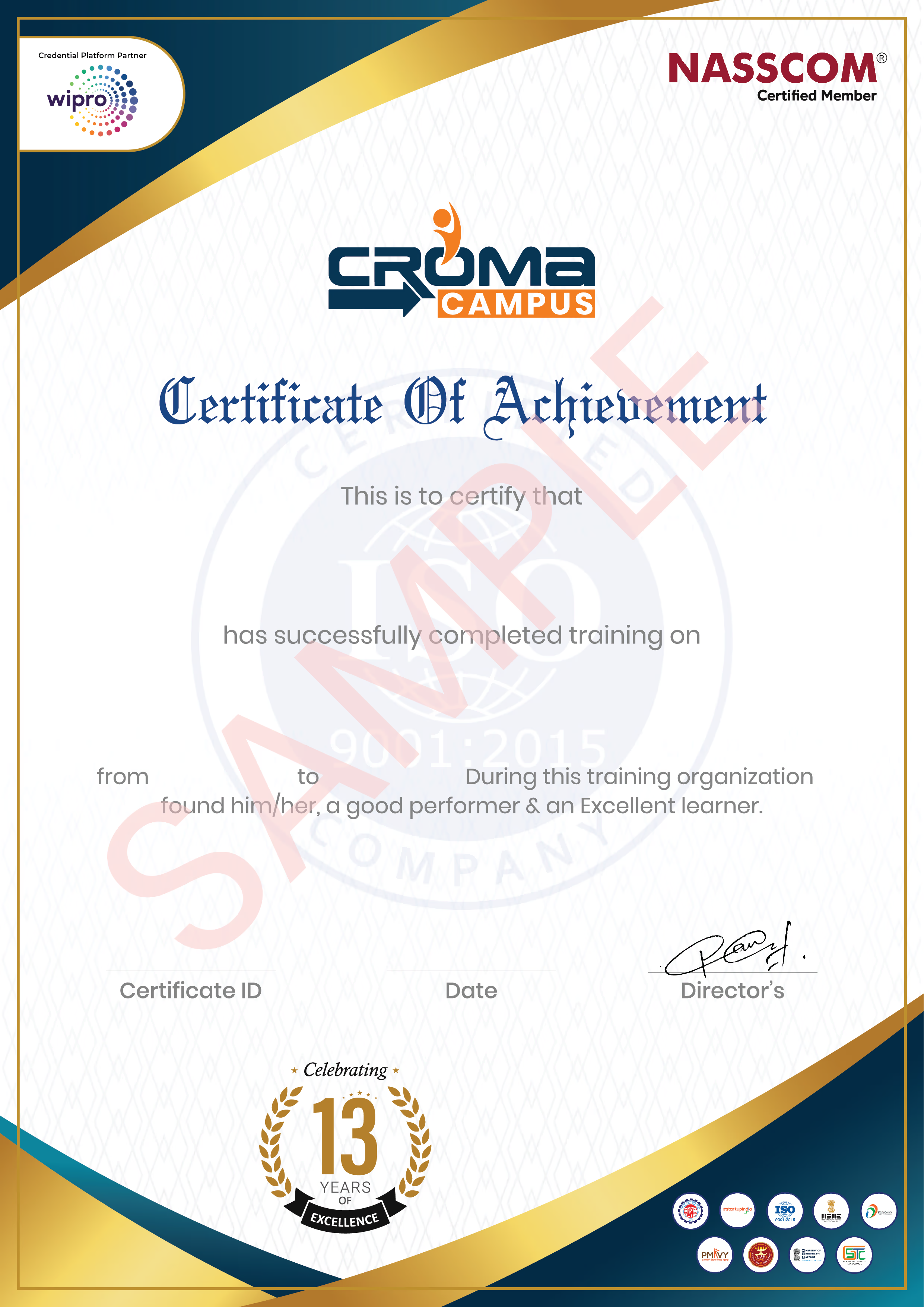
.webp)
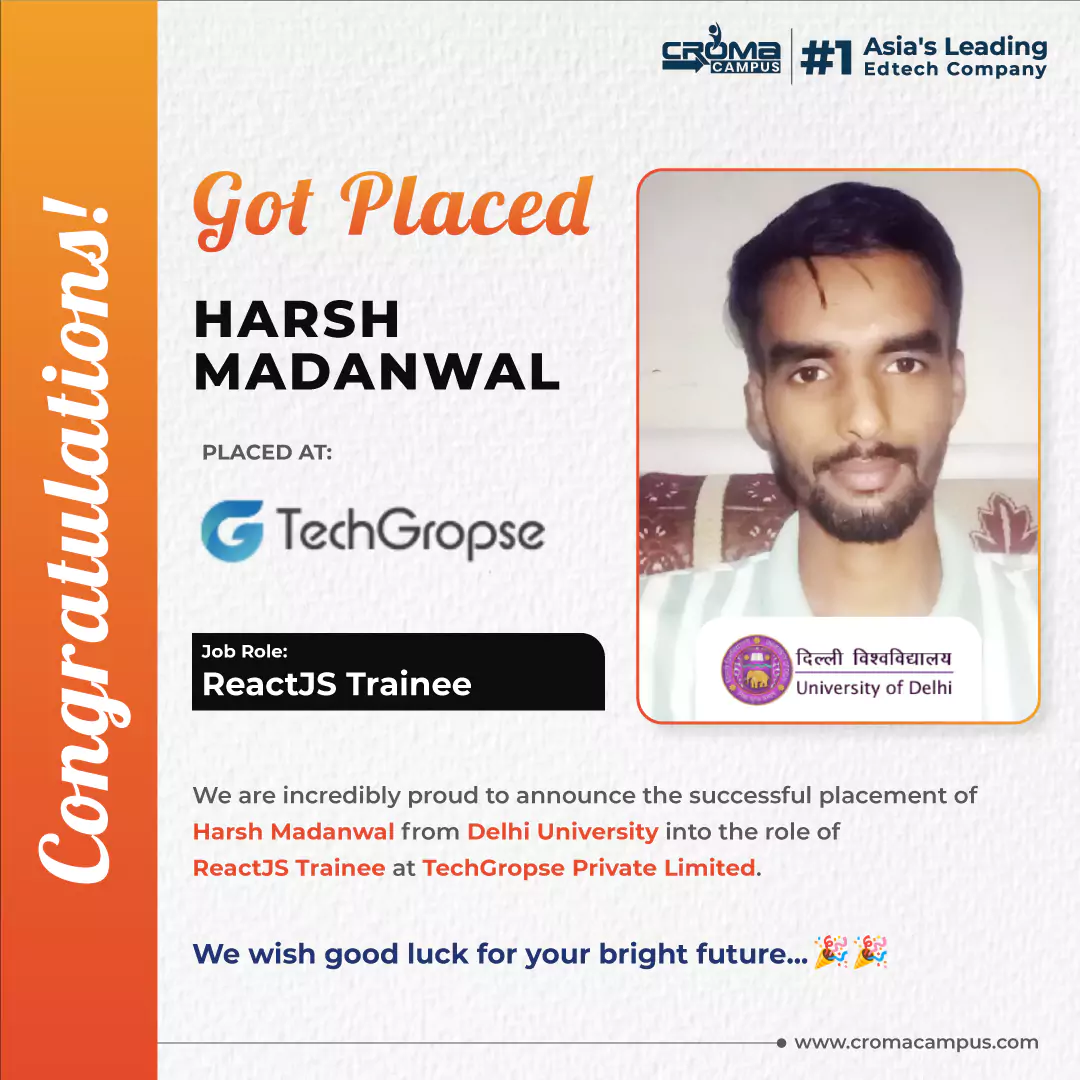







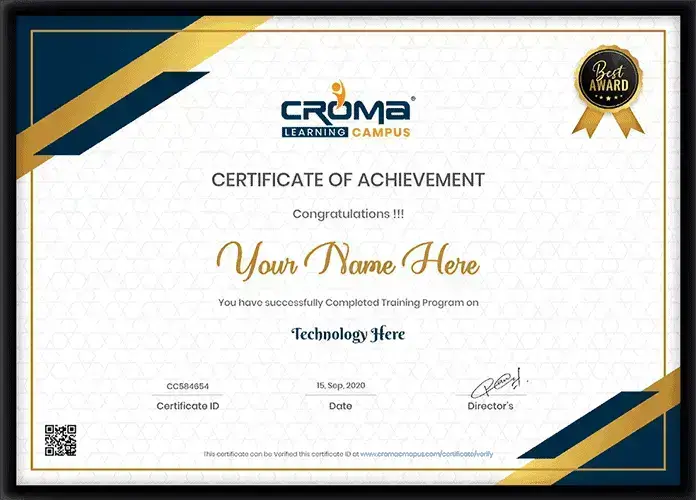












 Master in Cloud Computing Training
Master in Cloud Computing Training